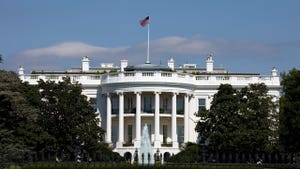What Happens to Our Data When We Die?
The short answer is -- nothing good. Companies make a killing from ‘dead data.’ And we can do very little about it.

Don’t die on the internet.
The data of deceased persons is used and reused by companies and individuals for their own ends. Some of this usage is moderately benign, but most are unpalatable or even evil.
The bottom line is that the dead have no data rights.
The primary regulations on data privacy are only for living people. And even then, the regulations only allow living individuals to ask to have their data deleted (called -- the right to erasure). Admittedly, a company that doesn’t delete information once asked can be fined, but here’s the thing: Your private data is held by so many entities that it’s impossible to ask them all. Some “personal privacy services” can ask for your data to be erased on your behalf, but they are regional and generally only cover data brokers.
Now if you’re dead, it becomes a whole lot more complicated. You must have given someone the legal right to access and manage your data. Some parents have tried to access their deceased child’s data and have been rejected by the courts. Even if you permit someone, they must go through the whole process described above. In other words, your data lives on no matter what.
But what use is dead data to companies and individuals? As an associate told me, “What better identity to steal than a dead person?” And that’s just the start. Research showed that 50% of Facebook clients want their dead data deleted, while about 25% want it left alone. The final 25% wanted their Facebook page turned into a memorial. Enter a brand-new industry: The digital afterlife industry (DAI). I kid you not. The DAI market was about $350 million in 2020 and is expected to grow to about $5 billion by 2026. So, what’s the value to commercial companies in hosting a deceased’s memorial site? They track who visits the site and advertise to the visitors. Or create behavioral profiles of visitors to sell to marketers. Remember, most sites follow you after you’ve left their site. And an average website has 15 external calls per visit (they send your data elsewhere).
But the digital afterlife industry is pretty benign -- they host memorial sites, get advertising opportunities, and create profiles -- no harm, no foul.
On to the less benign side of dead data. Apart from pure identity theft, which is an anathema right there, what if someone combined a dead person’s data and behavior with artificial intelligence? As a proxy for AI, some people have used a relative’s data to commit fraud. (One parent kept their deceased daughter “digitally alive” for three years until an insurance policy matured.)
Combining a dead person’s data with AI creates a “digitally immortal personality or cyber-souls.” If personal data is used without permission or is stolen, they are called “digital zombies.” The AI handles communication style, motivation, emotions, and plans. It combines them with the deceased’s data and processes these through a natural language processor (NLP) to allow two-way communications with the living.
The application of digital immortal personalities can be moderately harmless -- like creating a personality from a great writer who can then continue to write. Or allowing a deceased architect to continue designing buildings or an artist to paint. Generative AI is capable of this now. Provided the effort is accredited, and royalties and fees are paid, this idea is weird and not much else.
But what if a digital zombie was a politician who could incite violence or a banker who could commit fraud? A friend and I were joking about setting up a DaaS (Deity as a Service.) Take a great philosopher or religious leader, add a little AI and NLP, and have them answer prayers. It’s a joke, but it is possible.
The adage “With great power comes great responsibility” might read, “With great power comes great rewards.” Our dead data has the potential to reward many individuals and companies.
And there’s not a lot we can do about it.
About the Author
You May Also Like






